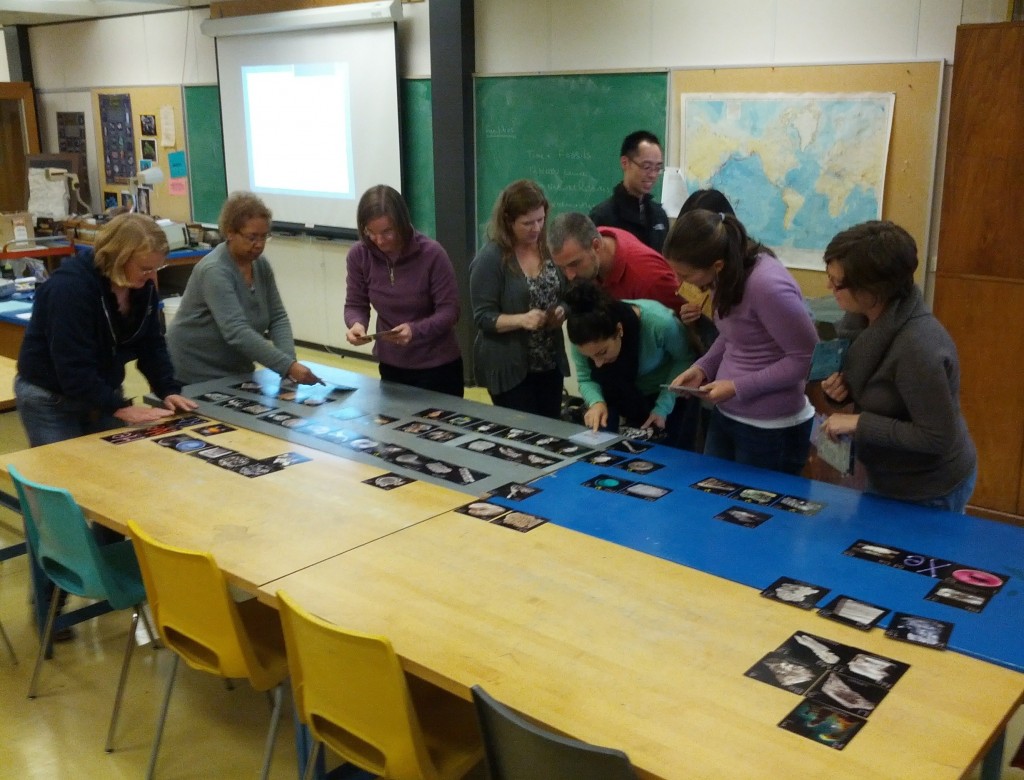May 2013
Staff at PCIGR are busily preparing for the arrival of the Nu Plasma 1700, a large geometry high-resolution multi-collector mass spectrometer. This instrument will be the first of its kind in Canada, and only fifth worldwide.
read moreMay 2013
Staff at PCIGR are busily preparing for the arrival of the Nu Plasma 1700, a large geometry high-resolution multi-collector mass spectrometer. This instrument will be the first of its kind in Canada, and only fifth worldwide.
read moreMay 2013 — Victoria
PCIGR staff and students had the unique opportunity to tour the scientific drilling vessel JOIDES Resolution, docked in Victoria, BC.
See photos here.
The tour started near the derrick on the “catwalk,” where the 9-m-long cores are first received after being brought up from the seafloor. The group then viewed many of the scientific areas, including the petrophysics lab, core lab, microscopy/paleontology lab, and chemistry/microbiology lab. We also got to visit the galley, gym, lounge/movie room, and lastly the ship’s bridge.
October 2012 — UBC
During the recent BC provincial professional development day (October 19), the Pacific Museum of the Earth hosted an Earth Sciences teacher training weekend.

Over 40 teachers from Montessori, public and private elementary schools in the Lower Mainland attended. Friday and Sunday featured ~1.5-hr geochemistry workshops given by a PCIGR staff member and one of the Department’s Teaching and Learning Fellows.
read moreAugust 2012
This month’s issue, “Frontier of the Future,” provides an insight into the most promising research being conducted in North America today, and includes a 4-page feature on the groundbreaking geochemical studies being carried out at PCIGR.
In the Q&A section, PCIGR Director Dominique Weis explains the foundations of her research into the geochemistry of the Earth’s mantle, via mantle plumes, which probe the deep, hidden interior of the planet.
The main article describes how the team is using the unique isotopic signatures of the Hawaiian archipelago and other oceanic islands to conduct pioneering research into the dynamics of the Earth’s mantle.
June 26, 2012 — UBC
PCIGR is pleased to announce the funding of a prestigious and highly competitive NSERC Collaborative Research and Training Experience (CREATE) program to train students and young scientists in applied geochemistry.
The Multidisciplinary Applied Geochemistry Network (MAGNET) integrates state-of-the-art analytical laboratories and leading geochemistry researchers across Canada, including four UBC faculty members in collaboration with specialists at McGill and the Universities of Quebec (Montreal and Chicoutimi), Toronto and Ottawa. PCIGR will be the main training hub in western Canada.
read more